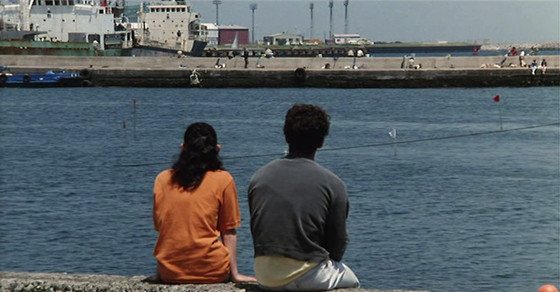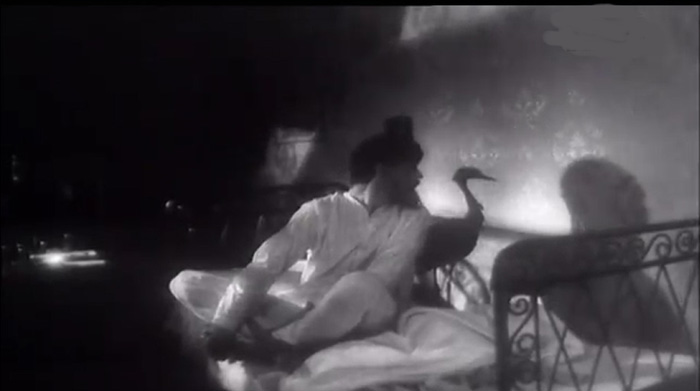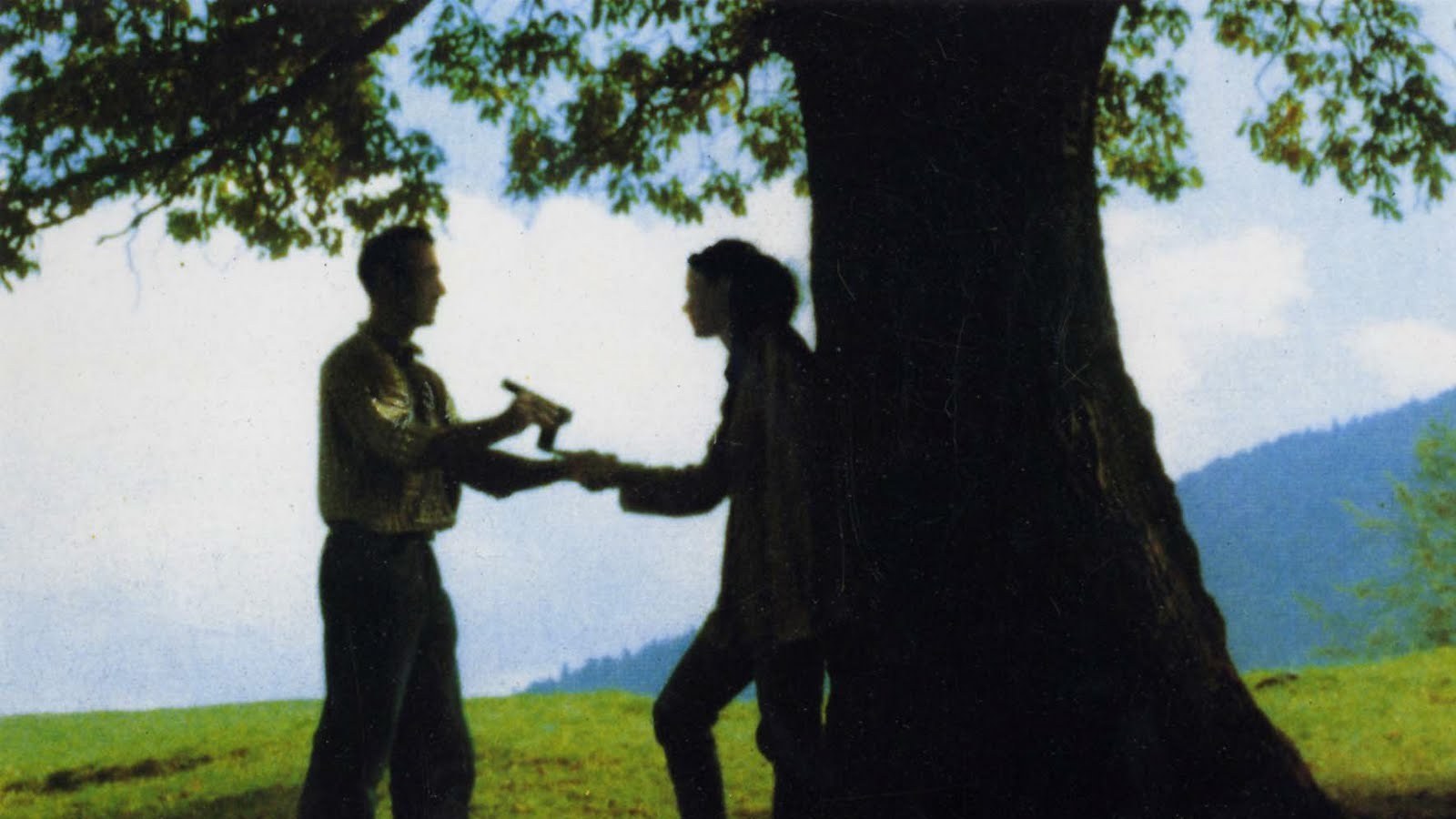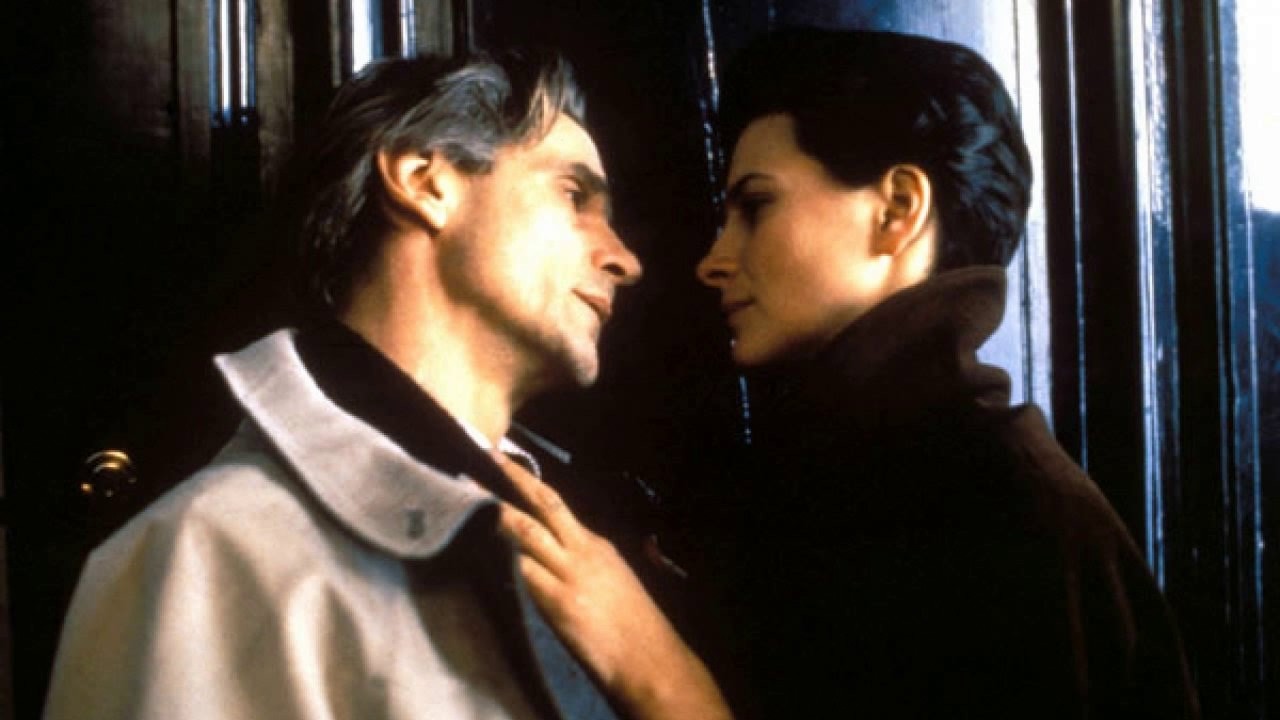6. A Scene at the Sea (1991), directed by Takeshi Kitano

“A Scene at the Sea” follows the story of Shigeru, a man born with a hearing impairment, who works with the sanitation service in a town by the sea. With a girlfriend, Takako, who has the same condition as him, Shigeru’s life changes when he finds a broken surfboard. From that moment on, he dedicates everyday in learning how to surf and even joins a surfing contest, but it might cost him his job or even his relationship.
With an amazing soundtrack by Joe Hisaishi, probably the greatest achievement by “A Scene at the Sea” is that is doesn’t have to rely on words. The great silent performances by Claude Maki and Hiroko Ôshima and the precise shots make every nuance meaningful in this film.
The writing and directing is also remarkable; everything is clear for the audience to understand the traces of this narrative and to feel moved by all the conflict these two characters are going through, not only in their relationship, but with family, work, and the “surf scene” in that city.
One of the best films directed by Takeshi Kitano, “A Scene at the Sea” is a beautiful and silent masterpiece of Japanese cinema from the 90s that is definitely worth watching.
7. The Stone (1992), directed by Aleksandr Sokurov

This story, directed by Russian master Aleksandr Sokurov, revolves around the encounter of a young man and famous writer Anton Tchekhov. While spending a night together, they talk about many things and we start to understand the relationship between life and death.
With an unusual choice of lenses, “The Stone” has a dreamlike atmosphere and a slow-paced narrative that establishes a beautiful meditation between life and death, but mostly how the relationship of humanity and a work of art transcends the living and even the artist himself.
Directed by one of the most acclaimed Russian filmmakers of all time, “The Stone” is definitely an underrated masterpiece that is definitely worth seeing by any cinephile.
8. The Oak (1992), directed by Lucian Pintilie

Written by Lucian Pintilie and based on Ion Baiesu’s novel, “The Oak” follows the story of Nela, a woman in Romania before Nicolae Ceausescu was overthrown. Ceausescu was the second and last Communist leader in Romania and is known for being one of the most brutal and repressive heads of state in the Soviet bloc.
Through the story of Nela, we understand most of the relations in that society. The daughter of a former colonel, she refuses to become an agent like her sister. She lives with her father, and when he dies she decides to leave Bucharest and goes to a little town where she meets a surgeon with a peculiar sense of humour.
“The Oak” is absolutely a masterpiece of Romanian cinema that should definitely be watched by any film fan to understand the brutality of that government and how that society was organized at the time.
With great writing and circumstances that one by one shows us how troublesome that society was under that government, “The Oak” definitely is among the finest films from Romania and is absolutely a must-see film.
9. A Pure Formality (1994), directed by Giuseppe Tornatore

Written and directed by Giuseppe Tornatore, mostly known for his acclaimed film “Cinema Paradiso”, “A Pure Formality” stars Gérard Depardieu and Roman Polanski and is one of the most interesting films of the 90s.
Following the story of the interrogatory of Onoff (Depardieu), a famous writer who is now a recluse, the film shows us an inspector (Polanski) who is a big fan of the writer’s work, but is suspicious about him after the police finds Onoff disoriented on a stormy night running through the forest without any identification.
“A Pure Formality” is a lesson of dialogue in film, which was written by Tornatore in collaboration with Pascal Quignard. Line after line we start to notice as this passion by the inspector turns into mistrust, and the way the events of previous hours start to be recalled by Onoff.
With great editing and good performances by Polanski and Depardieu, the directing of this film is superb, as Tornatore makes this plot occupy every inch of the police station in which it takes place.
10. Damage (1992), directed by Louis Malle

Written by famous playwright David Hare based on the work of Josephine Hart, “Damage” is a film about a member of the Parliament who falls deeply in love with his son’s fiancée. Ignoring many of the dangers if the affair becomes public, this obsessed politician considers leaving everything to be with her.
This movie goes deep into the most gloomy aspects of lust, love and obsession. The climax of the film is breathtaking and the writing of “Damage” is among the most extraordinary in that respective decade.
With a story that goes darker and darker, “Damage” is a heartbreaking film that is definitely worth seeing not only because of the aforementioned superb writing, but also for the brilliant performances by Juliette Binoche and Jeremy Irons.
Author bio: Vítor Guima is a filmmaker, writer and musician from São Paulo, Brazil. Every day he watches a movie, reads a few pages from a book, listens to an album and freaks out with the feeling of not having enough time to see everything. You can follow him on Instagram on @ovitorguima.